PT100
Platinum-based resistance temperature sensor. Pt100 sensors are temperature sensors based on the resistance change of platinum under the influence of temperature. The designation is composed of the material (Pt) together with its nominal resistance R0 at a temperature of 0 °C.
Pt100 (R0= 100 Ω).
The European DIN-IEC standard (DIN EN 60751/IEC 751) is considered to be the world-wide standard for platinum resistance sensors and specifies the electrical resistance for a Pt100-resistance sensor as follows: Pt100 at 0°C = 100.00 Ω
The platinum contains a deliberate admixture of other materials, by which it changes its electrical values at high temperatures far less than pure material and has a higher long-term stability.
The temperature of the substance to be measured is quickly ascertained and measured in dot.
Pt100 wire-measuring resistors
The temperature-sensitive platinum wire, wound into several coils, is for instance, embedded in a ceramic mass and housed in a glass or ceramic tube as protection against corrosion. The winding technique is applied for the measurement of higher temperatures. The nominal resistance is adjusted by shortening the platinum wire. At BÜHNEN, Pt100 sensors are used as standard.
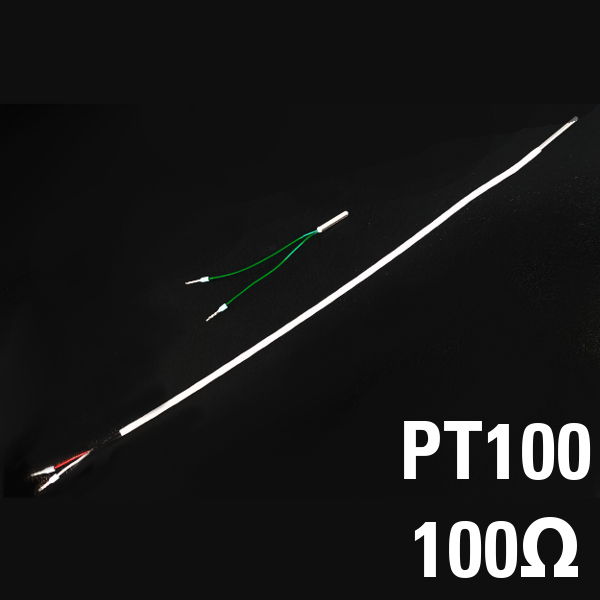
Difference of the temperature sensor on the plug
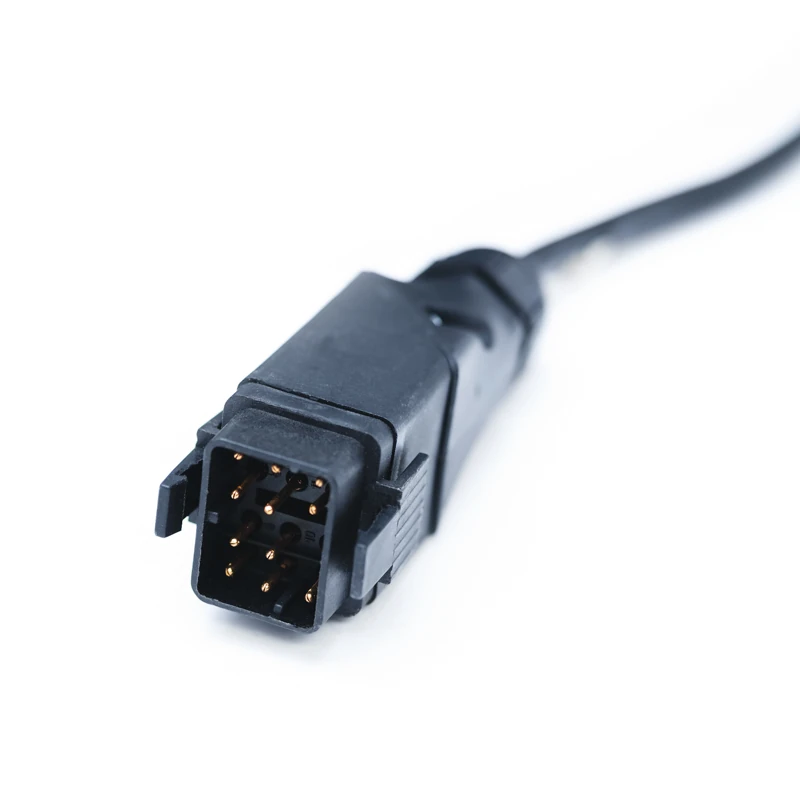 Ni120 at hose |
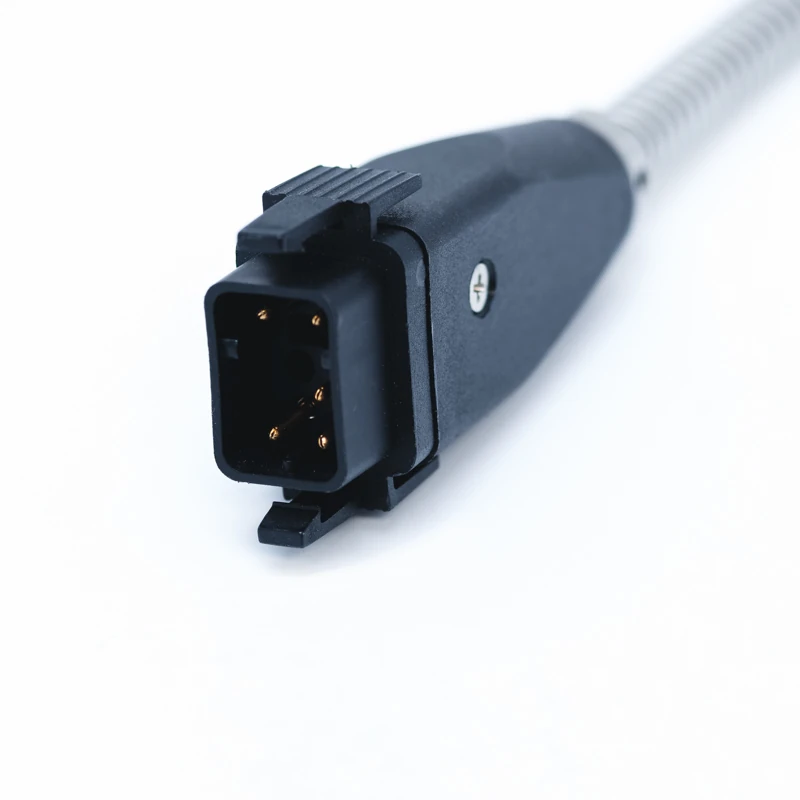 Ni120 at application head |
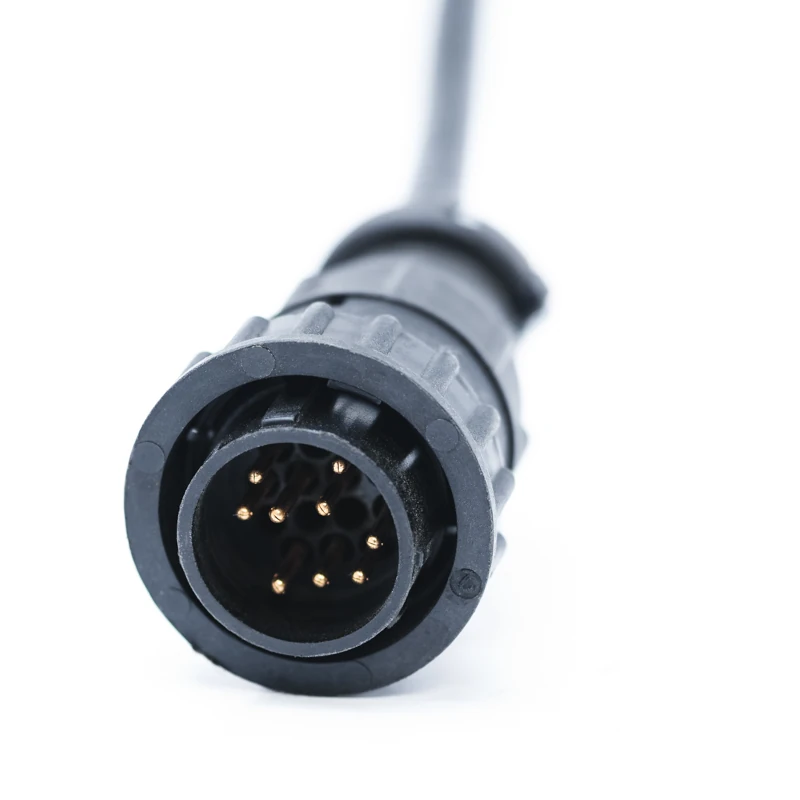 PT100 at hose |
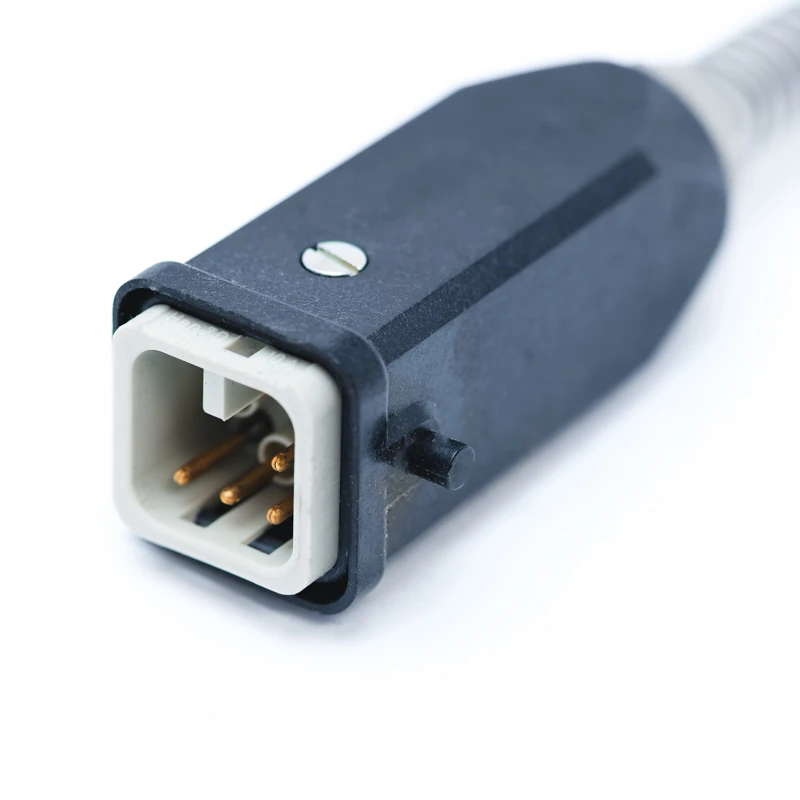 PT100 at application head |
